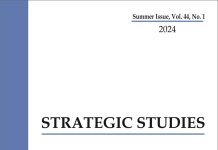Do foreign policymakers pay attention to scholarship on foreign policy and national security issues? If not, then who is to blame – scholars who produce scholarship, or policy-makers? These questions are at the core of a new book, Cult of the Irrelevant: The Waning Influence of Social Science on National Security, authored by Michael C. Desch, political science professor at the University of Notre Dame. He explores the extent to which academics have been inclined to produce policy-relevant research and argues that it is the duty of scholars to do so. He contends that the field of political science and its sub-fields, international relations and international security, have prioritised complex methods and models over problem-driven research and in the process, scholarship became irrelevant for the policy-makers. Even this preference for models and methods is the result of the quest of political scientists to be considered as engaged in undertaking scientific work.
The book is a study of the rise of the field of political science in the US as a discipline from the early 1900s to the present. At times, the author widens the scope across disciplinary divides and at others, the focus is solely on the scholarship of foreign policy and security studies. The central problem, according to Desch is: gradually scholars have moved towards methodological rigour over policy relevance and it has led to an imbalance. Departments of political sciences across the US prefer rigour i.e., applying methods derived from natural sciences and mathematics to gain relevance in the world of academe. Desch aptly traces the history of this push for rigour through the era of Progressive movement of the 1920s to Behavioral revolution of 1950s and post-modern debates of recent decades.













